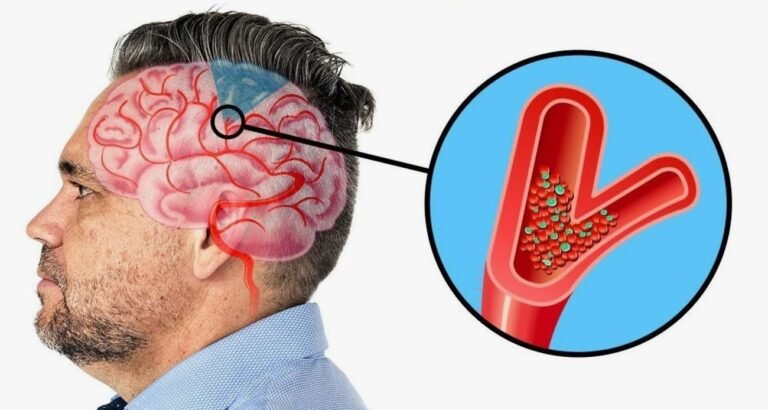A Comprehensive Exploration of Mental and Physical Well-being
In the fast-paced and demanding world we live in, maintaining mental health is as crucial as taking care of our physical well-being. Fortunately, a powerful ally exists in the form of exercise, a multifaceted approach to enhancing both mental and physical health. This article aims to delve into the intricate relationship between exercise and mental well-being, exploring its profound effects on mood, sleep, depression, anxiety, and stress.
Physical Health Benefits of Exercise
The journey towards holistic well-being begins with understanding the profound impact of exercise on physical health. Regular physical activity contributes to improved aerobic capacity, muscle size, and an overall sense of well-being. Engaging in exercise isn’t merely about sculpting the body; it’s about nurturing it from the inside out.
Aerobic capacity, often measured by factors such as increased lung capacity and cardiovascular health, is significantly enhanced through regular exercise. The heart, a vital organ, becomes more efficient in pumping blood, leading to improved circulation and oxygenation of the body. This, in turn, boosts energy levels and overall vitality.
Furthermore, exercise serves as a sculptor for the body, promoting muscle growth and toning. The physical benefits extend beyond aesthetics, influencing posture, flexibility, and joint health. As the body becomes stronger, individuals often experience a newfound sense of confidence and body positivity.
Mental Health Benefits of Exercise
The mental health benefits of exercise are equally, if not more, profound. The positive impact of exercise on mental health spans across various dimensions, effectively addressing issues such as depression, anxiety, stress, and attention-deficit/hyperactivity disorder (ADHD).
- Depression and Anxiety: Exercise has been shown to be a potent antidote to depression and anxiety. Physical activity stimulates the production of endorphins, the body’s natural mood lifters, creating a euphoric feeling known as the “runner’s high.” In fact, studies suggest that regular exercise can be as effective as antidepressant medication in treating mild to moderate depression.
- Stress and ADHD: Stress, a ubiquitous aspect of modern life, finds a formidable opponent in exercise. Physical activity triggers the release of neurotransmitters like norepinephrine, which moderates the brain’s stress response. Additionally, exercise has been linked to improved attention, focus, and impulse control, making it a valuable component in managing symptoms of ADHD.
- Exercise vs. Antidepressant Medication: Comparing exercise to antidepressant medication reveals an interesting dynamic. While both approaches can be effective in treating depression, exercise stands out for its lack of adverse side effects. Moreover, the long-lasting benefits of regular exercise extend beyond symptom management, promoting overall mental well-being.
- Stress Relief, Memory Improvement, and Mood Enhancement: Exercise is a holistic remedy for stress relief, memory improvement, and mood enhancement. It acts as a natural stress reliever by reducing levels of cortisol, the stress hormone. Additionally, it stimulates the production of brain-derived neurotrophic factor (BDNF), a protein that supports cognitive function and memory.
Specific Mental Health Conditions and Exercise
The positive influence of exercise is not confined to general mental well-being; it extends to specific mental health conditions, offering hope and relief.
- Anxiety, PTSD, and Trauma: Exercise emerges as a therapeutic tool for individuals grappling with anxiety, post-traumatic stress disorder (PTSD), and trauma. The rhythmic and repetitive nature of exercises like running or swimming can be meditative, promoting emotional regulation and resilience.
- ADHD and Concentration: The role of exercise in managing ADHD goes beyond mere physical activity. Engaging in structured physical activities enhances neural connections, particularly in brain regions associated with executive function, attention, and concentration.
General Well-being and Exercise
Beyond addressing specific mental health conditions, exercise contributes to overall well-being in myriad ways, creating a positive ripple effect in various aspects of life.
- Memory, Self-esteem, and Sleep: Exercise has been linked to improvements in memory and cognitive function. Additionally, the sense of accomplishment derived from physical activity contributes to enhanced self-esteem. Better sleep quality is another significant byproduct, with exercise promoting deeper, more restorative sleep.
- Energy, Resilience, and Overall Mood: Contrary to the misconception that exercise depletes energy, regular physical activity has been shown to increase overall energy levels. Moreover, it fosters resilience, helping individuals bounce back from life’s challenges. The cumulative effect of these benefits is a sustained improvement in overall mood.
Practical Tips for Incorporating Exercise
Understanding the transformative power of exercise is one thing; integrating it into our daily lives is another. Here are practical tips to overcome common barriers and make exercise a consistent part of your routine:
- Start Small and Be Consistent: Begin with manageable goals and gradually increase intensity. Consistency is key; even short, regular bursts of activity can yield substantial benefits.
- Find Enjoyable Activities: Choose activities you genuinely enjoy. Whether it’s dancing, hiking, or yoga, the key is to make exercise a pleasurable part of your day.
- Establish a Routine: Incorporate exercise into your daily routine, treating it as non-negotiable as brushing your teeth. This helps form a habit and reduces the likelihood of skipping workouts.
- Buddy System: Exercise becomes more enjoyable when shared. Partnering with a friend or family member not only provides motivation but also adds a social element to your routine.
- Adapt to Your Preferences: Explore different types of exercise to find what suits you best. Whether it’s outdoor activities, home workouts, or gym sessions, variety keeps things interesting.
- Overcoming Barriers: Address common barriers to exercise, such as fatigue, feeling overwhelmed, hopelessness, negative self-perception, and pain, through gradual progress, realistic goal-setting, and seeking support when needed.
Conclusion
In conclusion, the symbiotic relationship between exercise and mental well-being is a testament to the holistic nature of health. The benefits extend far beyond physical fitness, encompassing mental resilience, emotional well-being, and an overall enhanced quality of life. By understanding and harnessing the transformative power of exercise, we pave the way for a healthier, happier, and more fulfilling existence. Embrace the journey towards well-being, one step, and one workout at a time.







